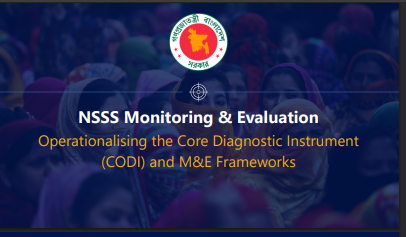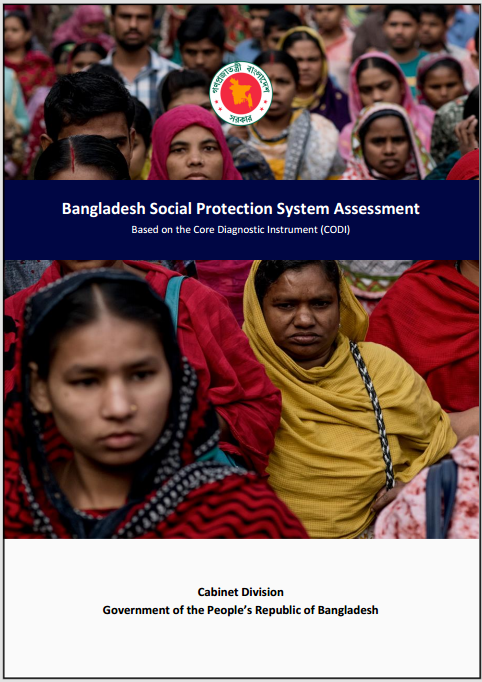This report presents an assessment of Bangladesh’s social protection system using the Core Diagnostic Instrument (CODI), developed under the Inter-Agency Social Protection Assessments (ISPA) initiative. CODI evaluates social protection performance across 10 criteria and 47 indicators, covering inclusiveness, adequacy, governance, sustainability, and responsiveness. The 2023 assessment, conducted by the Cabinet Division with support from the EU-funded TASSSR project, builds on earlier assessments (2017, 2019, 2022) and provides an updated evidence base for reforms under the National Social Security Strategy (NSSS) Action Plan Phase II (2021–2026).
Bangladesh has made significant socio-economic progress, including poverty reduction, expanded education and health outcomes, and rapid economic growth, supported by an evolving social protection system. The NSSS, adopted in 2015, established a lifecycle-based framework, while financing has expanded substantially, with budget allocations averaging annual increases of BDT 11,264 crore since 2015. Coverage has grown, reaching around 50% of the population by 2022.
The 2023 CODI findings indicate steady improvements, with an overall average score of 3.4 (on a 1–4 scale). Strengths include fiscal sustainability (average 3.8), coherence and integration (3.5), and responsiveness (3.5). Areas needing attention include incentive compatibility (3.0) and inclusiveness (3.2), reflecting persistent challenges in targeting, adequacy, and inclusion of vulnerable groups. Looking forward, the report emphasizes the need for a comprehensive NSSS 2026+, grounded in evidence, stakeholder participation, improved targeting, and strengthened institutional coordination. The CODI assessment provides actionable insights to guide reforms toward a more inclusive, effective, and sustainable social protection system in Bangladesh.





